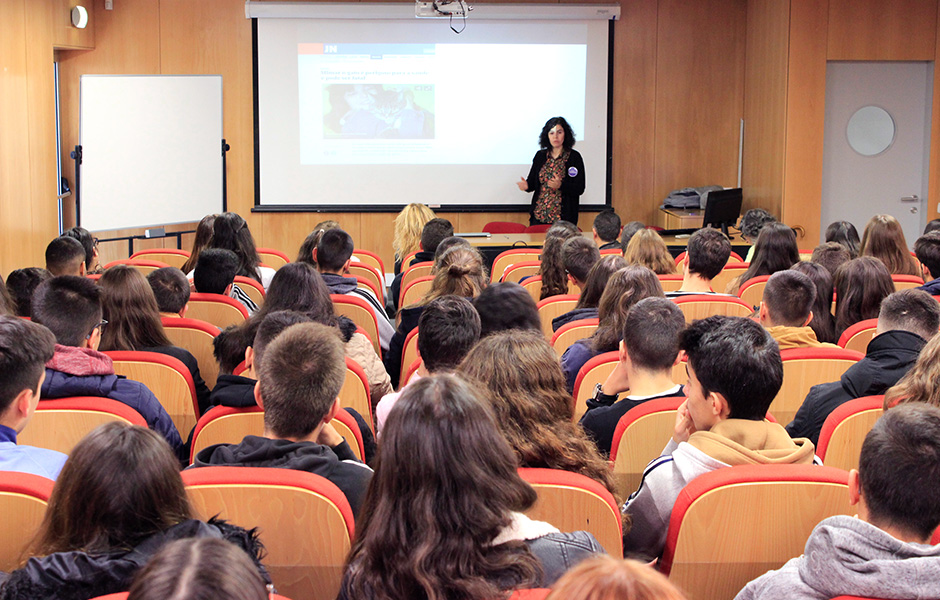CINTESIS will be in various schools throughout the country in the coming weeks for a series of sessions aimed at establishing bridges between researchers and educational institutions, fostering collaboration and dialogue between these two worlds.
The initiative is taking place in the framework of the Programa Cientificamente Provável (Scientifically Probable Program) under the responsibility of the Secretary of State of Education, through the School Libraries Network, and the Secretariat of State of Science Technology and Higher Education. The target audience includes students from the 2nd and 3rd cycles of basic education, and secondary education.
The first two sessions were undertaken by the researcher Cristina Santos, professor and CINTESIS researcher in the fields of Biostatistics and Clinical Investigation Methodology. The specialist visited the Schools Group of Cerco in Porto and the Schools Group of Rio Tinto nº 3 in Gondomar where she explored the theme of media and scientific literacy and analyzed some examples of news about science published in the media.
“We frequently find news that begin with ‘A scientific study said that’ … But often what is said in the news is not related to what the scientific study shows and this sometimes even has a very negative impact on the health of populations,” she says.
With these sessions, Cristina Santos hopes that the students will better understand clinical research and the process of communicating results to the scientific community and the population, but also that they are more critical when they read news in a newspaper, television or social networks.
“If we are not able to question and evaluate what we are told, we are hostage to what others want to convey and that limits our freedom. It is very important that the entire community acquires more and more scientific literacy,” she continues.
More sessions by CINTESIS researchers are scheduled for the near future. This time the PaCeIT – Patient Centered Innovation and Technologies group will involve the school community in studies on the development and validation of mobile applications for people living with respiratory diseases.
This group is particularly dedicated to empowering patients and their families to participate more actively and share decision-making with healthcare professionals in the context of care, in order to improve disease control and improve quality of life. Among its most recent projects are the mHealth, InspirerMundi, Allergy Diary and Allergy Monitor applications.
The São Lourenço School Group in Valongo and the Fermil Professional School in Celorico de Basto are on the list of upcoming schools to visit, but others may join them in the future.
According to the executive manager of CINTESIS, António Soares, the unit is strongly committed to materializing its mission of involving society in science and is “open to accept more collaboration requests and promote all activities related with the growth of scientific culture”.
The Scientifically Probable Program aims to “reinforce the promotion of knowledge and contribute to the enrichment of the training of young people, establishing closer links between higher education institutions and primary and secondary schools, with the intermediation of school libraries”. It is believed that “this program will contribute to developing young people’s research, communication and information literacy skills, motivating them to deepen their knowledge and pursue higher education in their areas of interest.”

